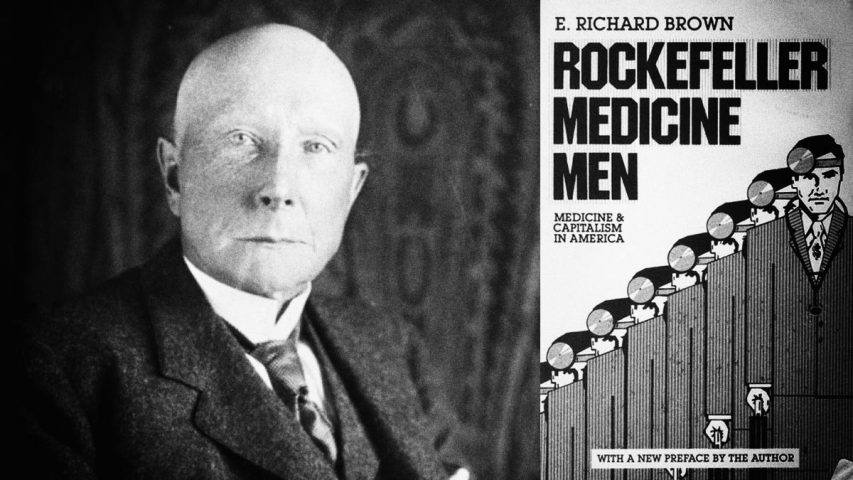- Have any questions? Contact us!
- info@dr-rath-foundation.org

Books by Dr. Rath and Dr. Niedzwiecki approved by Ministry of Education in Cyprus for inclusion in official catalogues for schools
September 18, 2014
Evidence growing that daily use of supplements can reduce national healthcare costs
October 10, 2014Rockefeller family announce plan to withdraw fossil fuel investments and move into clean energy: But what about their holdings in the “Business with Disease”?

In an unexpected development, the Rockefeller family has announced it is planning to withdraw its philanthropic fund’s fossil fuel investments and move into clean energy instead. Having made one of the world’s largest fortunes through the oil business over the past 140 years or so, they claim they are preparing to slash the Rockefeller Brothers Fund (RBF) holdings in fossil fuels to less than one percent of its total portfolio and reinvest in “clean energy technologies and other business strategies that advance energy efficiency”. Towards this goal, a statement published on the RBF website, which oversees almost $900m of investments, describes an intention to divest coal and tar sands assets “as quickly as possible”.
Not surprisingly, therefore, around the internet and in alternative media circles many theories are being advanced regarding suggested ulterior motives for this announcement. These include the possibility that the Rockefellers may be short-selling the energy market; that they could be planning to divert investments into nuclear power, which some so-called “authorities” now absurdly class as being sustainable and renewable; or that moving ahead they intend to retain fossil fuel investments through other asset funds and schemes.
Whatever the truth is, taking into account the history of the Rockefeller family and its well-documented role in the development of the corporate approach to medicine, we expect many people will likely share our reluctance to immediately break out the champagne over this announcement. Significantly therefore, despite the RBF chair, Valerie Rockefeller Wayne, talking about the “moral imperative to preserve a healthy planet” in her media interviews, we note that no similar public commitment has been made towards disposing of the Rockefeller family’s investments in the trillion-dollar-a-year pharmaceutical ‘business with disease’.
The initial drive towards developing an industrialized healthcare system came from John D. Rockefeller, the family’s patriarch and a co-founder of the Standard Oil company. Born in 1839, John D. liked people to think of him as a philanthropist, someone who used his vast wealth for the benefit of mankind. In reality, however, he was arguably one of the most ruthless and determinedly avaricious men in America. As such, with the Rockefeller family currently claiming that, if John D. Rockefeller were alive today, as an astute businessman he would similarly be moving out of fossil fuels and investing in clean, renewable energy, it is difficult to believe they are not modelling their business acumen on that of the very man still seen by many as the greatest robber baron of all time.
All of which causes us to wonder whether John D. Rockefeller’s descendents are now perhaps dreaming of achieving a comparable global control of clean energy technologies to that which he himself once had over the production, transporting, refining and marketing of oil? Whilst only time will tell, we suggest it would take a brave man to bet against this.


